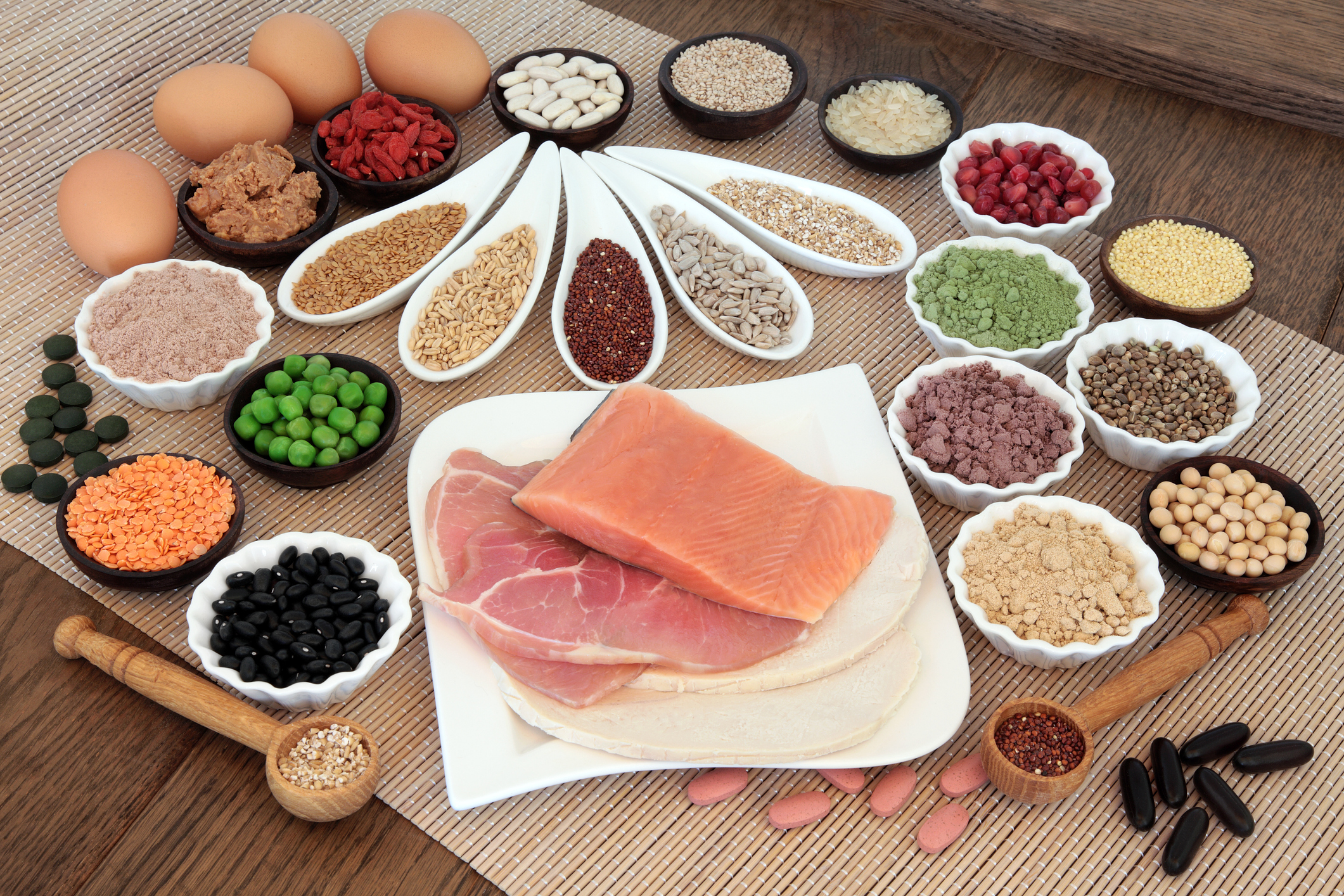You don’t have to be a vegan to opt for veggie-based meals. While animal-based foods can deliver quick protein fixes and be alternatives to carb-filled snacks, they typically come with an extra amount of saturated fat, calories, cholesterol and sometimes unwanted hormones or bacteria. Not to mention, you may be packing your day with too much protein.
So, how much protein should we be eating every day? The average, sedentary male and female should consume around 56 grams and 46 grams, respectively. If you workout, that amount may be higher. Knowing that, let’s examine how much protein is in some popular lean meat choices:
2 eggs = 12 grams of protein
4 ounces of chicken = 36 grams of protein
3 oz. of tuna = 20 grams of protein
4 ounces of lean ground beef = 28 grams of protein
.5 fillet (198 g) of salmon = 40 grams of protein
If you have two eggs for breakfast, a piece of chicken for lunch and salmon for dinner – that would be 88 grams of protein, in ONE DAY.
Vegetarian or not, many can benefit from decreasing their animal protein consumption.
And, if that isn’t enough to persuade you, checkout this quinoa article that explains the difference between plant-based and animal-based proteins: 100 grams of quinoa provides 14 grams of protein along with 25% of the recommended daily allowance for both iron and vitamin B6, nearly 50% for magnesium, and over 560 mg of potassium. While 100 grams of beef only provides 26 grams of protein, and only 14% iron, 20% B6, 5% magnesium and 318 mg of potassium.




Hi. What about Brussels sprouts in lifestyle meals? Are they allowed?
Hi Stephanie,
Feel free to add in some brussel sprouts should you so choose. You can adjust lifestyle meals according to your own tastes, just always be mindful of your proportions.